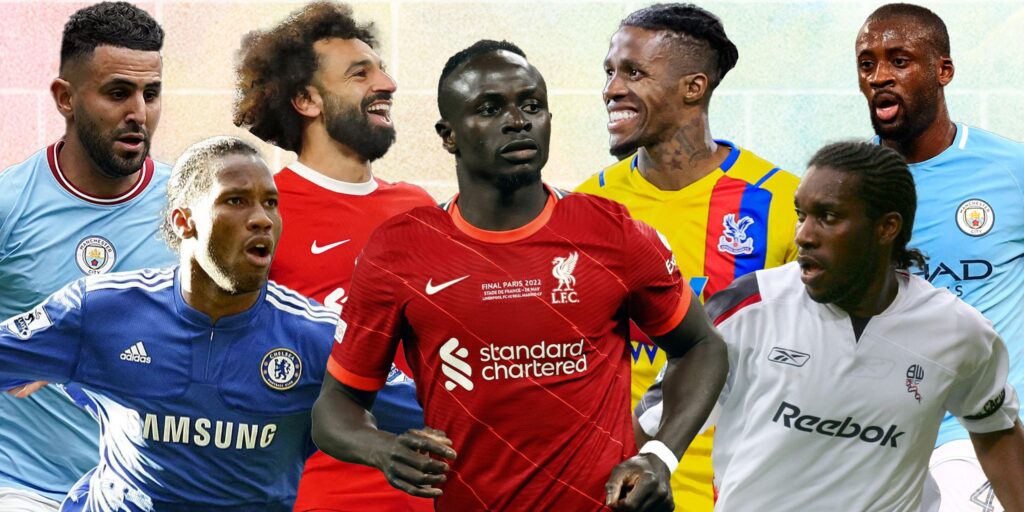As the global popularity of football continues to soar, the contributions of African players in European leagues have become increasingly prominent, reshaping the dynamics of the sport on and off the pitch. From the dazzling skills of legendary forwards to the tactical acumen of midfield generals, African talent has repeatedly demonstrated its ability to elevate club performances and captivate audiences. This article delves into the profound impact of African players in European football, examining their roles in top-tier clubs, the challenges they face, and the cultural exchange that enriches the lovely game. By highlighting key figures and their journeys,we aim to illuminate the vital part these athletes play in fostering a more inclusive and diverse football landscape. Join us as we explore the narratives that underscore the growing influence of African players in one of the world’s most beloved sports.
Table of Contents
- The Rising Impact of African talent in Major European Leagues
- Analyzing the Contributions of african players to team Success and Dynamics
- Addressing Challenges Faced by African players in European Football
- strategies for Clubs to Better Support African Talent in Their Development
- Wrapping Up
The Rising Impact of African Talent in Major European Leagues
The increasing presence of African players in major European leagues is reshaping the landscape of football, both on and off the pitch. These athletes are not only showcasing their talent but are also bringing unique cultural influences that enrich the game. As clubs recognize the potential talent from Africa, a range of benefits has emerged, including:
- Increased Diversity: The influx of players from various African nations adds a rich tapestry of playing styles and strategies.
- Economic Growth: Clubs are tapping into lucrative markets in Africa, enhancing their fan bases and revenue streams.
- Rising Role Models: Success stories of African players inspire future generations and promote the sport in their home countries.
Moreover, the contribution of these players extends beyond their impressive performances on the field. They often engage in philanthropic efforts, funding education and sports programs in their communities back home. A few standout players have significantly influenced their clubs and leagues, evident in recent statistics:
| Player | Club | Goals (Season) | Awards |
|---|---|---|---|
| Sadio Mané | Bayern Munich | 15 | Player of the Month (September) |
| Mohamed salah | Liverpool | 18 | Top Scorer (Premier League) |
| Achraf Hakimi | PSG | 12 | Best Young Player (Ligue 1) |
This remarkable presence not only highlights the skill and passion of African players but also signifies a shift in the global football paradigm, one where talent knows no boundaries and the beautiful game continues to unite nations.
Analyzing the Contributions of African Players to Team Success and dynamics
The impact of African players in European football transcends individual performance, weaving into the very fabric of team success and dynamics.These athletes often bring a unique blend of technical skill, physical prowess, and cultural diversity that enhances on-field chemistry, encourages innovative tactics, and fosters unity among teammates. Notable figures such as Mohamed Salah and Sadio Mané have illustrated how their presence can elevate a team’s competitive edge, often leading to impressive results in top-tier leagues and tournaments. Their ability to adapt and thrive in different playing styles also plays a crucial role in a team’s overall strategy.
Moreover, African players frequently serve as vital connectors within teams, promoting inclusivity and collaboration. Their backgrounds often spur camaraderie among diverse squads, bridging gaps between players of different nationalities. On a statistical level, teams that incorporate multiple African talents tend to showcase remarkable performance metrics, as seen in the following table:
| Team | African Players | Championship Wins |
|---|---|---|
| Liverpool | Mohamed salah, Sadio Mané | 1 Premier League, 1 UEFA Champions League |
| Chelsea | Didier Drogba, N’Golo Kanté (of African descent) | 2 Premier League, 1 UEFA Champions League |
| Arsenal | thomas Partey, Nicolas Pépé | 0 Premier League Titles |
Addressing Challenges Faced by African Players in European Football
Despite their substantial contributions to European football, African players often encounter a range of challenges that can hinder their performance and integration into new environments. One significant issue is the cultural adjustment players must undergo when transitioning from their home countries to a European lifestyle.This adjustment period may involve grappling with language barriers, differing social norms, and even feelings of isolation. The unfamiliarity of their new surroundings can lead to mental health struggles,affecting both their on-pitch and off-pitch lives.
Moreover, there are instances of discrimination and stereotyping that African players face in various European leagues. These injustices can manifest as negative perceptions from media, fans, and even some club officials, frequently enough overshadowing their athletic abilities and achievements. Clubs need to foster an inclusive atmosphere that not only acknowledges but celebrates diversity. Initiatives focused on community integration and anti-discrimination campaigns are paramount for mitigating these issues. Below is a table that highlights some of the key areas where support can be beneficial:
| Challenge | Potential Solution |
|---|---|
| language Barriers | Language classes offered by clubs |
| Cultural Isolation | Community outreach programs |
| Discrimination | Anti-discrimination training and protocols |
| Mental Health | Access to sports psychologists |
Strategies for Clubs to Better Support African Talent in their Development
To foster the growth of African talent, clubs must implement a multifaceted approach that recognizes the unique challenges and cultural dynamics of African players. Complete scouting systems aimed at uncovering not just skill, but character and adaptability can lay the groundwork for successful integration into European football. additionally, establishing partnerships with local academies can ensure a steady pipeline of emerging talent. These partnerships should focus on the following initiatives:
- Training collaborations: Build joint training programs with African clubs to enhance skill development.
- exchange programs: Facilitate youth exchanges between clubs to immerse young players in diverse footballing cultures.
- Language and cultural assimilation workshops: Offer support to help players navigate their new environments.
moreover, clubs should prioritize creating an inclusive environment that understands and respects the cultural backgrounds of their players. this can be achieved through the formation of mentorship programs that connect established players with new recruits from africa. Such mentorship can provide invaluable guidance and foster a sense of community within the club. To measure the effectiveness of these initiatives, clubs might consider tracking the following metrics:
| Metric | Importance |
|---|---|
| Player Retention Rate | Indicators of a supportive environment. |
| Performance Statistics | Assessing development success of African players. |
| Cultural integration Feedback | Player satisfaction with support initiatives. |
| Community Engagement | Strength of local support networks. |
Wrapping Up
As we conclude our exploration of the profound influence African players have had on European football, it becomes increasingly clear that their impact extends far beyond the boundaries of the pitch. These talented athletes have not only showcased exceptional skill and resilience but have also become cultural ambassadors, bridging gaps between nations and fostering a sense of unity within the global football community. Their contributions have enriched European leagues, compelling clubs to recognize the invaluable talent that Africa offers.
Moreover, as the global football narrative continues to evolve, the presence of African players in top European teams serves as a reminder of the importance of diversity and representation in sports. With many young athletes from the continent aspiring to make their mark overseas, it is indeed evident that the legacy of African footballers will continue to inspire future generations.
As European clubs increasingly invest in scouting and developing African talent, the synergy between the continents promises to flourish, shaping the future of football in exciting and unpredictable ways.The journey of African players in European football is a testament to their determination, and as they continue to break records and shatter stereotypes, we can only anticipate even greater achievements in the years to come.





